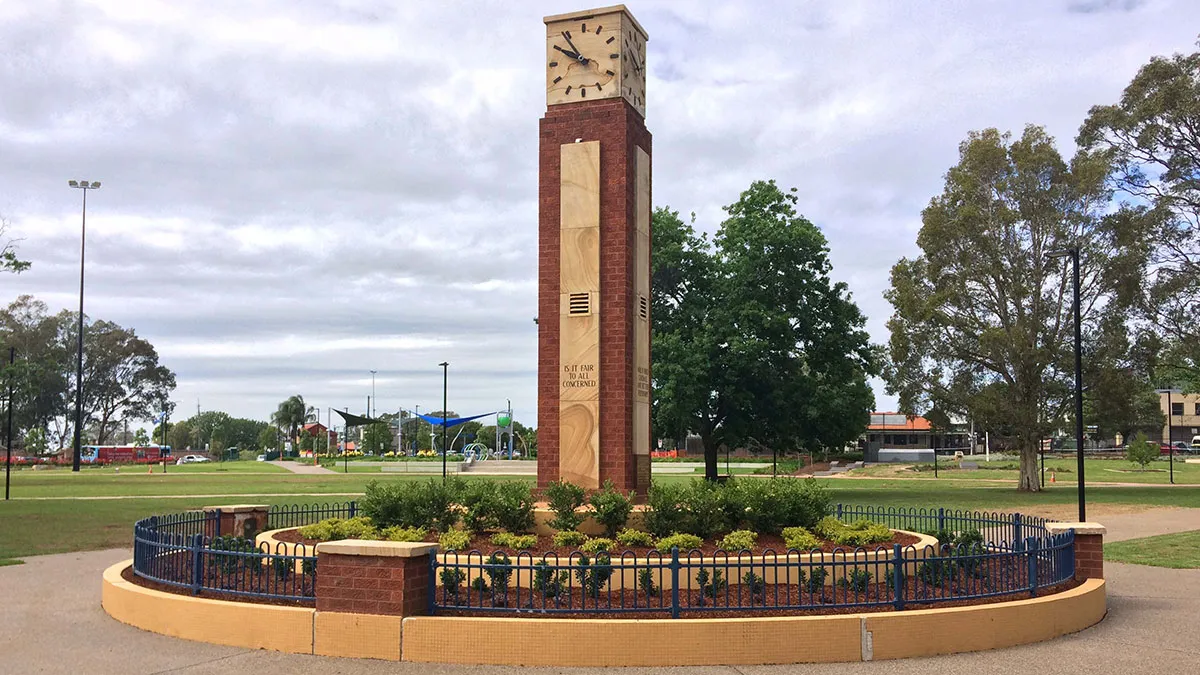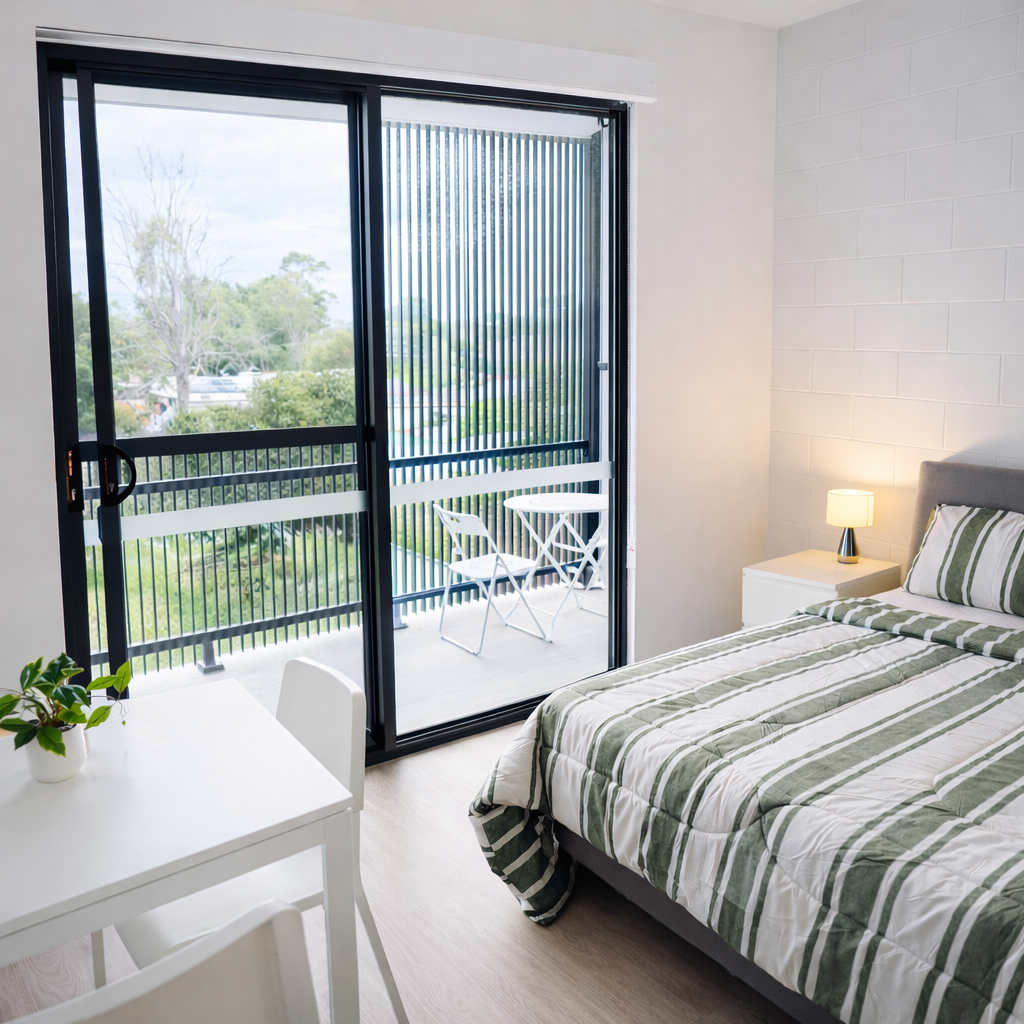NDIS Accommodation for People Living with Cerebral Palsy
Your home, your way. Experience the freedom of independent living at our homes tailored for people living with Cerebral Palsy. Choose your ideal location and be part of a supportive community environment, committed to helping you live the life you want.
Vacancies
No result found!
Accommodation for People with Cerebral Palsy
Supported Independent Living (SIL) Accommodation
Imagine a vibrant shared home environment where you can live independently while receiving tailored support for daily living tasks. Supported Independent Living (SIL) accommodation offers just that. Trained support workers assist with things like showering, dressing, meal preparation, and medication management. This allows you to focus on your goals, whether it's pursuing education, employment, or simply indulging in your favorite hobbies.
The Benefits of SIL for People with Cerebral Palsy
- SIL can be a fantastic option for people living with cerebral palsy who require assistance with specific tasks but also crave a sense of community and companionship.
- Support workers can be trained to your specific needs, ensuring you receive the right level of assistance for your mobility.
- If you have any personal goals or passions, your support workers can collaborate with you to make sure your SIL experience is as productive and rewarding as possible.
Specialist Disability Accommodation (SDA)
For those who require a more extensively modified living environment, Specialist Disability Accommodation (SDA) provides the right solution. SDA funding goes towards accessible features built directly into the home, such as wider doorways, lowered benches, roll-in showers, and height-adjustable cooker tops. This can significantly enhance your independence and safety within your own living space.
The Benefits of SDA for People with Cerebral Palsy
- SDA removes physical barriers that might otherwise hinder your ability to navigate your home comfortably.
- The level of modifications can be tailored to your specific needs, ensuring your home has the perfect specification based on your mobility and daily living requirements.
Short Term Accommodation (Respite)
The NDIS understands that everyone needs a break sometimes. Short Term Accommodation (STA), also known as respite, offers a temporary stay in a supported environment. This allows carers to take a well-deserved rest, while you enjoy a change of scenery and social interaction.
The Benefits of STA for People with Cerebral Palsy
- Respite care offers carers a chance to rest and recharge, enabling them to sustain their caring responsibilities long-term.
- For people with cerebral palsy, respite care is a chance to enjoy a new environment, meet new people, and enjoy activities they might not usually have access to.
Medium Term Accommodation (MTA)
Medium term accommodation is another option offered by the NDIS and is normally used by people with cerebral palsy to bridge the gap between temporary and permanent housing. The NDIS typically provides funded support for MTA stays lasting up to 90 days.
The Benefits of MTA for People with Cerebral Palsy
- MTA stays can provide a flexible solution during periods of change or adjustment.
- MTA provides a flexible solution while you search for your ideal long-term accommodation, which can be especially helpful if you require specific accessibility features in a permanent residence.
- Perhaps you're considering relocating to a new neighbourhood and want to check it out first. MTA allows you to temporarily live in a different area to see if it suits your needs and lifestyle preferences.
- If you’re transitioning from a hospital stay or rehabilitation program back into independent living. MTA offers a secure and supportive environment to adjust to a new routine and ensure a smooth return home.
Accessing NDIS Accommodation
To access NDIS accommodation options like SIL or SDA, you’ll first need to have an NDIS plan. This plan outlines the supports funded by the NDIS and how they can be used. It's essential to discuss your housing needs during your NDIS planning meeting to ensure that accommodation is included in your plan.
Accommodation Considerations
When considering your accommodation options, consider the level of support needed, the proximity of the accommodation to family and local amenities, accessibility, and personal preferences about the type of environment you’ll eventually live in. The pricing for each accommodation type under the NDIS is regulated and varies depending on the support levels and location.
Who is eligible for NDIS accommodation funding?
Eligibility is determined by the NDIS based on your individual needs and goals as outlined in your NDIS plan.
The NDIS can provide support for accommodation if it helps you achieve your goals in your NDIS plan and your cerebral palsy affects your ability to live safely and independently. This might include things like:
- Difficulty with daily tasks like showering, dressing, or getting around the house.
- Needing help with mobility or transferring (e.g., from bed to wheelchair).
- Having special equipment needs that your current home can't meet.
How much does NDIS accommodation cost?
There is no set cost associated with NDIS accommodation. The funding you receive will depend on the type of accommodation, the level of support required, and the location you plan to live in.
What factors should I consider when choosing NDIS accommodation?
Think about your desired level of independence, support needs, location preferences, and accessibility requirements.
To help you make the right decision, here are some important considerations to factor in:
- Think about your independence goals: How much support do you need with daily living?
- Consider your specific needs: Do you need wider doorways, a roll-in shower, or assistive technology in the home?
- Location matters: Would you prefer to live near family, friends, or public transport.
Frequently Asked Questions
The NDIS may fund Specialist Disability Accommodation (SDA) if your healthcare professional confirms that your Cerebral Palsy necessitates significant modifications to your current home. These modifications must be outlined in your NDIS plan.
Here's how to strengthen your application:
- Discuss challenges: During your NDIS assessment, explain the specific difficulties you face due to Cerebral Palsy, such as stiffness, limited mobility, or coordination issues.
- Therapist report: A detailed report from your therapist outlining these challenges and recommending suitable modifications can significantly improve your chances of receiving SDA funding.
SDA design principles prioritise removing physical barriers and promoting independence for people with Cerebral Palsy. Common modifications include:
- Wider doorways and hallways: Allowing for easier maneuvering of wheelchairs or walkers.
- Strategically placed grab bars: Enhancing safety and balance in bathrooms and showers.
- Ramps or lifts: Eliminating stairs and ensuring seamless movement throughout the home.
- Lowered benches and countertops: Providing easier access in kitchens and bathrooms.
- Automated features: Door openers, voice-activated lighting, and appliance controls minimise reliance on hand strength.
- Smooth, non-slip flooring: Reducing the risk of falls.
There are four primary levels of modification in SDA homes:
- Improved Liveability: Offers basic accessibility features like wider doorways and grab bars, making your home slightly easier to navigate. Ideal for those who require some assistance but can manage most activities in a slightly adapted environment.
- Fully Accessible: Removes most physical barriers with features like wider doorways, ramps, accessible showers, catering to a wider range of mobility needs. Perfect for individuals with significant mobility limitations who require a fully accessible environment to live independently.
- Robust: Designed for high wear and tear, with reinforced surfaces and fixtures that can accommodate future modifications as your needs change. Ideal for those who may require additional support in the future.
- High Physical Support (HPS): Offers everything above plus ceiling hoists, integrated assistive technology, and emergency power solutions. Ideal for people with very high physical needs who require constant assistance with daily living and mobility.
The level of modification will depend on the severity of your Cerebral Palsy.
Yes, the NDIS offers Short Term Accommodation (STA) as a valuable support for carers. STA placements provide a safe and nurturing environment for your loved one while you take a well-deserved break. This temporary accommodation can alleviate stress and prevent burnout, ensuring you can return to your caring role feeling refreshed.
Discuss your need for respite care with your NDIS planner. They will assess your circumstances and determine a suitable level of support to include in your NDIS plan.
The NDIS recognises that life can be unpredictable. Medium Term Accommodation (MTA) offers a temporary safety net during transitions. Whether you're searching for your ideal home or navigating adjustments to your NDIS plan, MTA provides a comfortable and accessible living space for a set period. This ensures a smooth flow during changes and allows you to focus on finding your perfect permanent solution.
The best option (Supported Independent Living (SIL), Specialist Disability Accommodation (SDA), or Medium-Term Accommodation (MTA)) depends on your specific needs and goals. Here's a breakdown to help you decide:
- Supported Independent Living (SIL): Offers support workers who assist with daily tasks in your existing home or a shared group setting. This option may be suitable if you require some assistance but value a high degree of independence.
- Specialist Disability Accommodation (SDA): Provides a specially designed dwelling with modifications to address your Cerebral Palsy-related challenges. This option is ideal if your current home requires significant alterations or you need a fully accessible environment to maximize your independence.
- Short Term Accommodation (STA): STA offers a supportive environment for short stays, typically under 14 days per occasion. It can give you a change of scenery, and your carers a chance to rest and recharge.
- Medium Term Accommodation (MTA): Offers temporary housing solutions during unforeseen circumstances or transitional periods. It can bridge the gap between living arrangements or provide a temporary base while you search for a permanent home.
At United for Care, we understand the unique needs of people with cerebral palsy. Our experienced team can guide you through the NDIS process and help you find an accommodation solution that’s suited to your goals.
Whether you’re looking for SIL and SDA options, or flexible short and medium-term stays, we can match your demands with the perfect home.
Best of all, with United for Care, you can be confident you’ll have far more than just a place to live. You’ll have the right balance of support and freedom to live the life you want to. Whatever your goals and aspirations are, you’ve got this, and we’ve got you.









.webp)
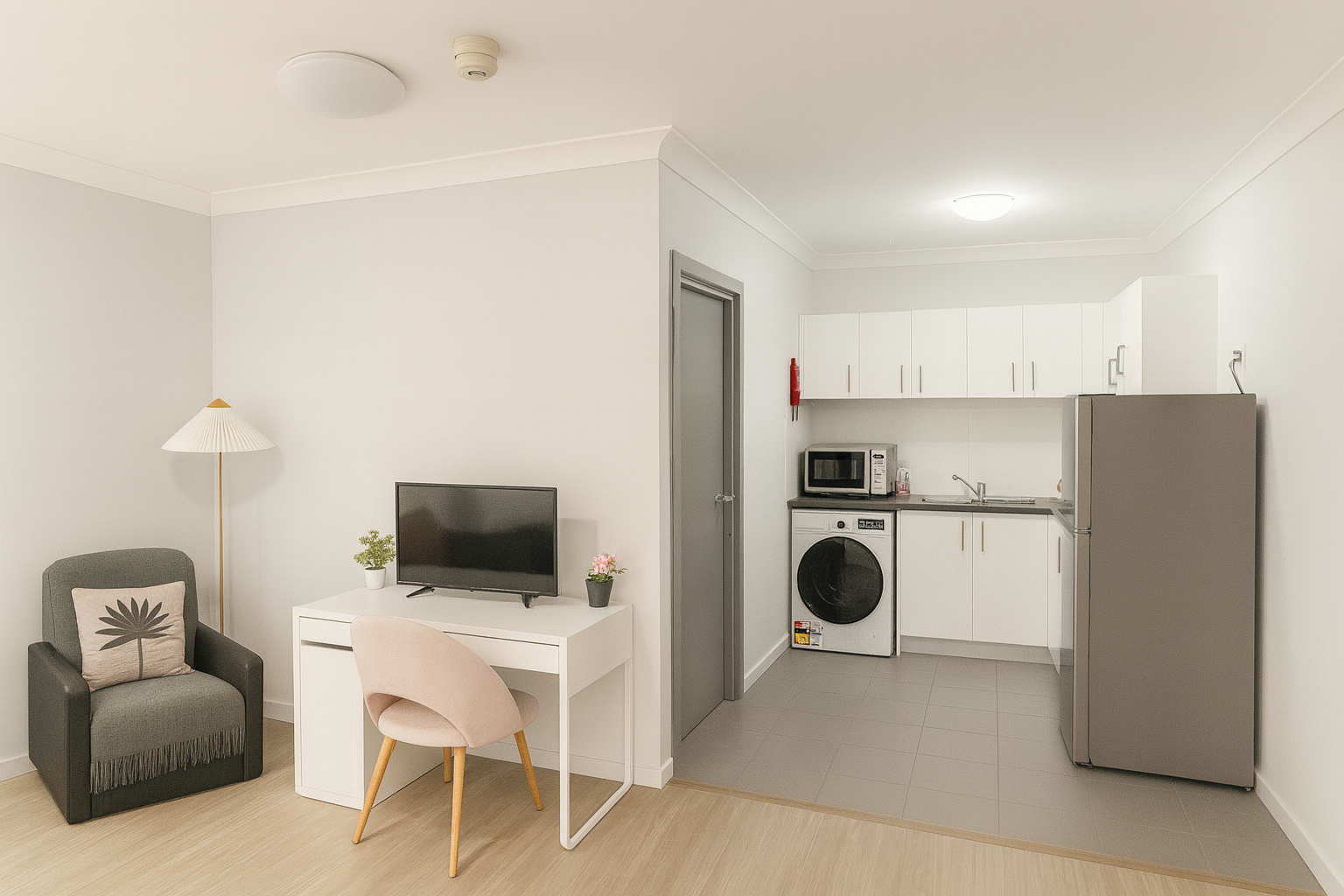
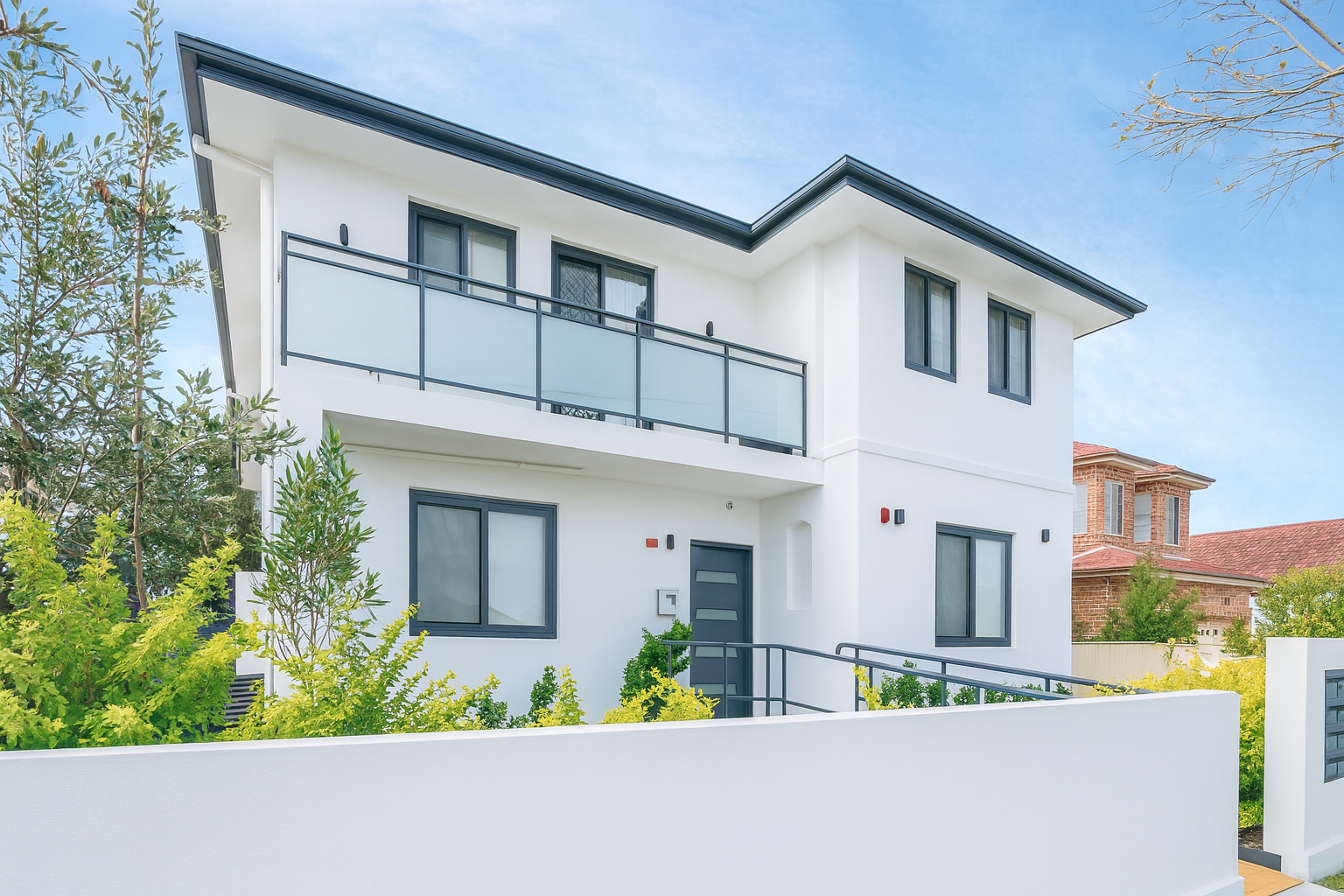
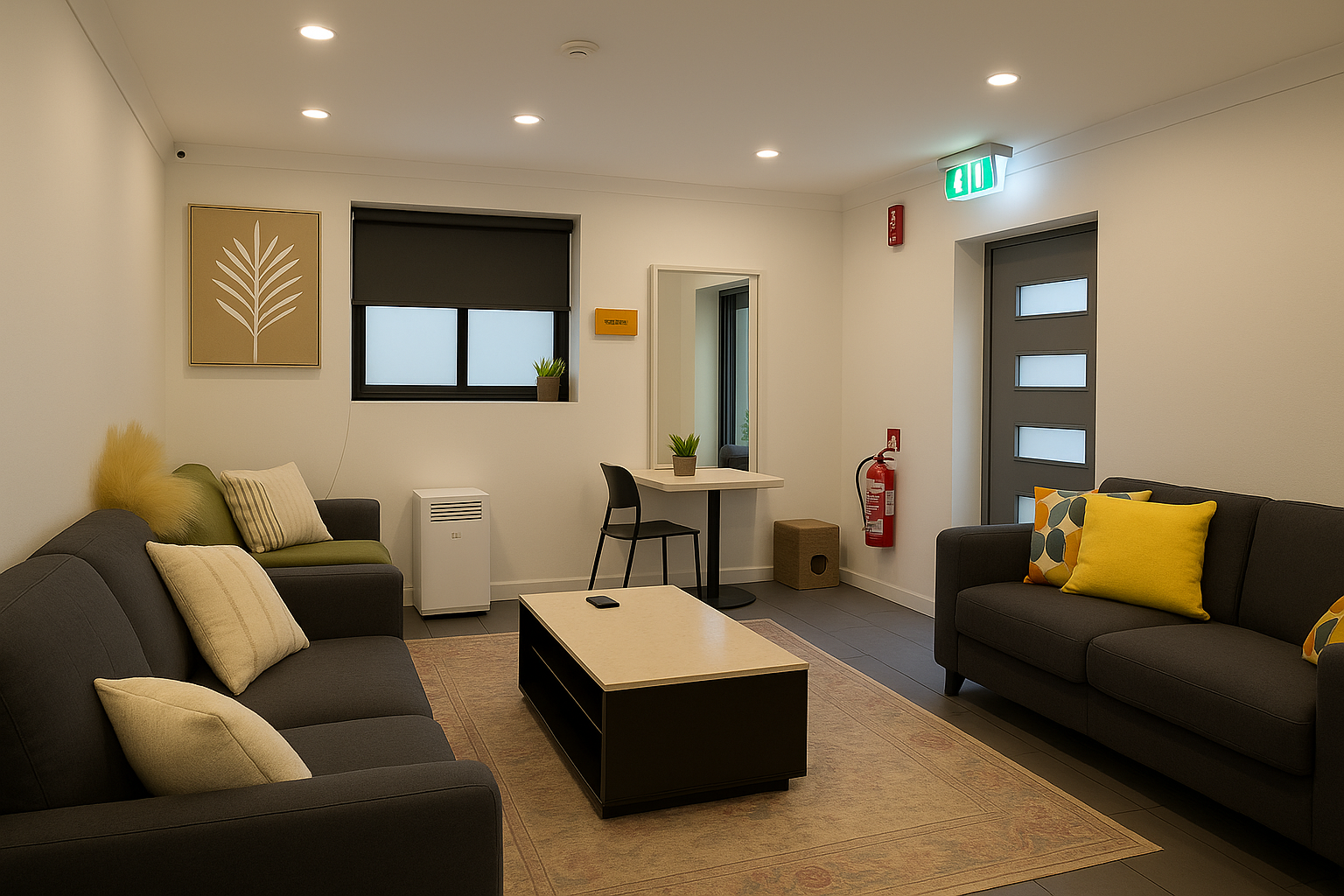
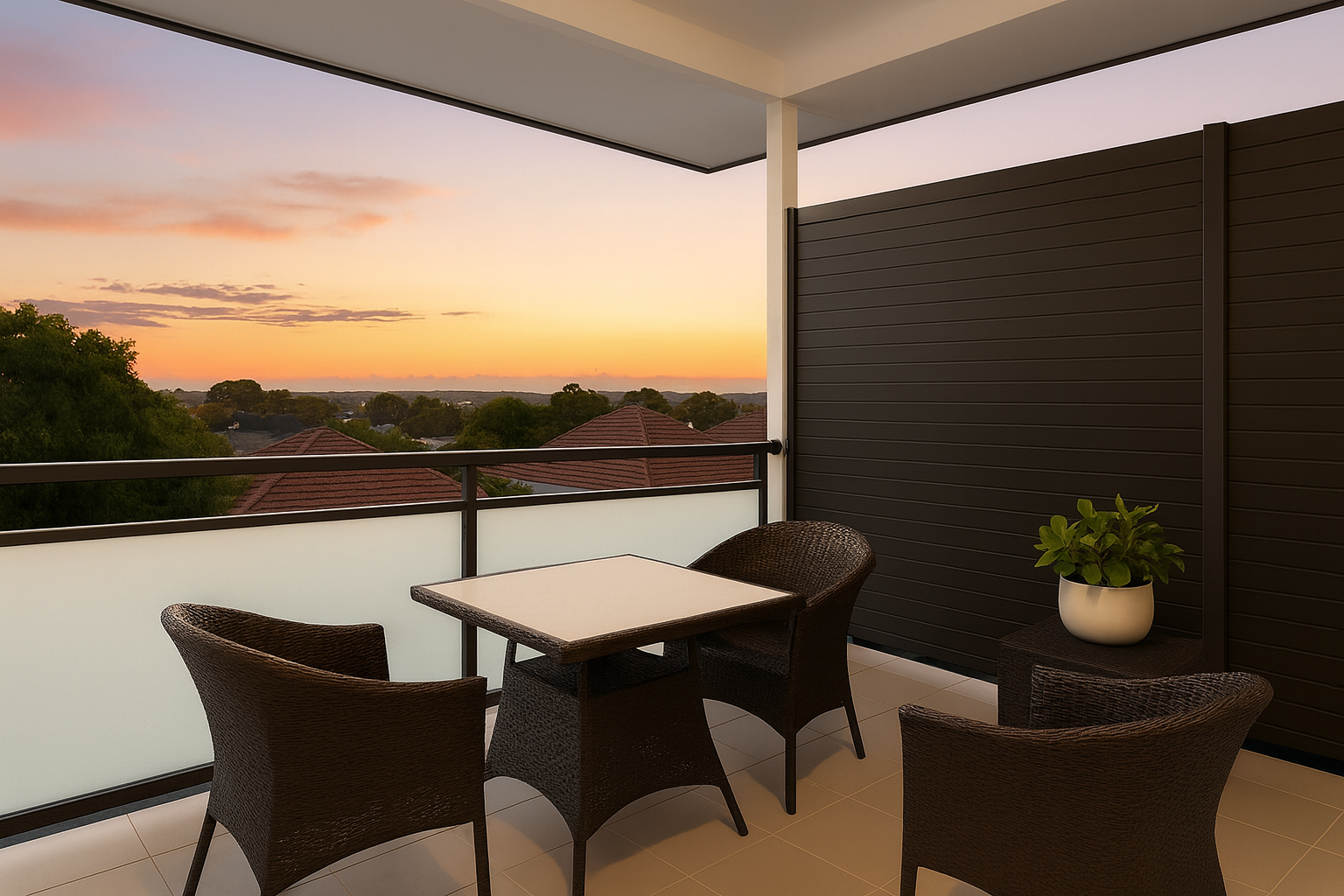







.webp)

.webp)

















